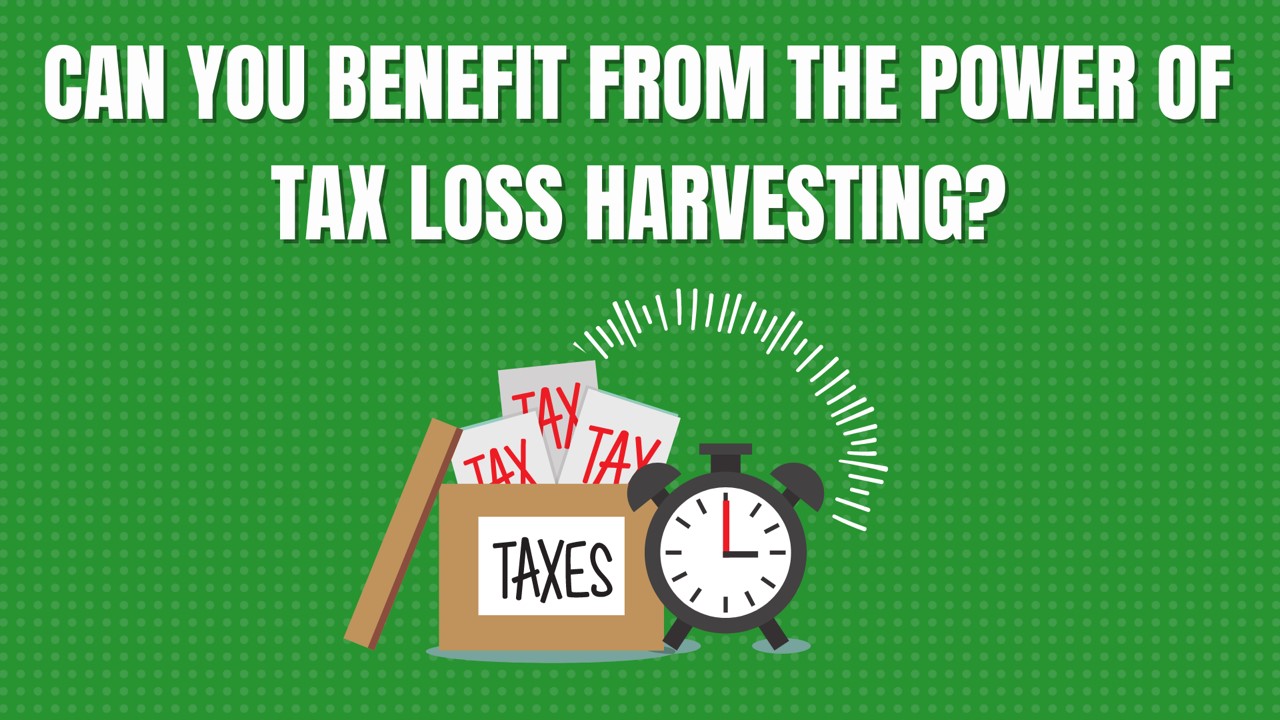Taxes are an adversary of anyone’s financial well-being. We must all pay our fair share of taxes, but at the same time there are strategies you should be aware of that may assist you in lowering the financial impact. One such strategy, tax loss harvesting, can be transformative in the process you use in mitigating taxes.
Tax loss harvesting involves the selling of investments at a loss to offset gains in your portfolio and reduce taxable income. You must develop a process for using this strategy to your benefit throughout the year.
The process you develop can have a significant impact on the taxes you pay at the end of the year and allow you to keep more of the returns you experience. Many investors confuse what return they receive, when looking at non-retirement accounts, instead of looking at what they can achieve after taxes. The after-tax return is the important number to concentrate on, as that is what you get to keep.
I thought it would be great to take a moment and share how we have used this strategy in our year-end tax planning and the impact it has had on the families we serve.
One family we work with recently had some significant gains in their portfolio that they were interested in locking in and redeploying these assets to another area of the markets. They were a bit hesitant to make the sales knowing there would be a large tax bill on the other side of the sale. We worked with them to devise a two-year game plan where we would begin to liquidate those holdings, taking the capital gains, and looking for areas within the portfolio where we could sell and take offsetting losses. This would allow us to limit the effects of the gain.
As we started to deploy this strategy the market decline of 2022 took place. This allowed us to accelerate our plan as certain areas of their investments showed losses and we immediately began to lock those in and shift those investable dollars to other areas. Over the year we were able to lock in about $150,000 of capital gains (which would have been approximately a $30,000 tax bill had we not harvested losses). Simultaneously, over the year, we were able to lock in $142,000 in losses to offset the gains previously mentioned. Tax loss harvesting allowed us to reduce their capital gains exposure from the $150,000 mentioned above to only $8000 (which is approximately a $1600 tax bill) saving them roughly $28,400 in taxes.
One may think that taking these losses is not a benefit as you have taken the loss. The reality is that you have done two things that should positively impact your portfolio. First, you have utilized the losses to save a significant amount of taxes due. Secondly, the investments sold to capture the losses are reinvested during a lull in the markets which should allow you to benefit when the markets eventually change.
Tax loss harvesting is something that should be looked at throughout the year. When you are rebalancing a portfolio due to market fluctuations see if there are ways you can make it more tax efficient, not only selling those securities that may be at a gain but also harvesting losses to offset those gains. Towards the year-end, I would also suggest that you review what your gains or losses are for the year and if there are any ways to reduce your tax liability using this strategy.
Do not let taxes, losses, or gains dictate the amount of after-tax returns you can achieve. Taking losses during periods of volatility can have a positive impact on the overall after-tax return for your portfolio, just like it did for the family we discussed above.
If you are interested in exploring the benefits of Tax Loss Harvesting and how it might impact your portfolio, our team would be happy to guide you, like the family we discussed. Feel free to schedule a 30 Minute Zoom Meeting as we would be happy to assist you in understanding your total costs.
This article represents the opinion of Mitlin Financial Inc. It should not be construed as providing investment, legal, and/or tax advice. Investing involves risk, including possible loss of principal. No strategy assures success or protects against loss. To determine what may be appropriate for you, consult your financial advisor.


